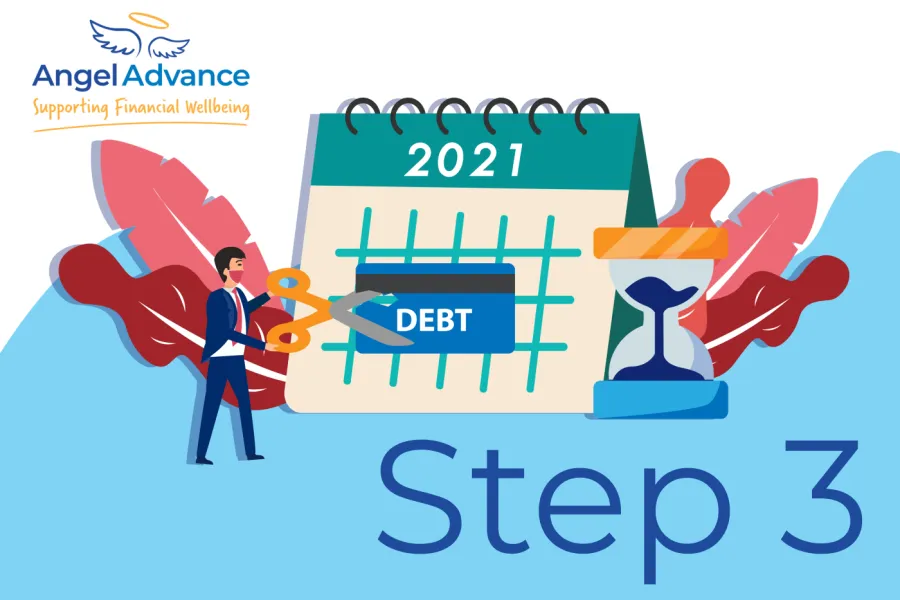Now that you’ve assessed your debts and evaluated your budgeting, it’s time to look into switching providers. Switching providers can often seem like a chore, but it’s becoming easier as providers offer switch services or work with comparison companies to help you decide which products are best for you.
Most people associate switching providers with balance transfer credit cards, but there are plenty more savings to be made! In this article, we’ll cover a whole host of different areas you can cut costs, starting with credit cards!
Credit Cards
0% balance transfer cards can really help pay off a pesky balance that you’ve been battling with for a few months. If you’re paying high interest rates and not paying much more than the minimum payment, the chances are you’re going to take a while to pay back the credit and pay more overall than you need to. The Money Charity estimates that a credit card with the average interest % would take 25 years and 5 months to repay if you made only the minimum repayments each month.
 Balance transfers really need to be utilised effectively to reap the benefits. There’s not much point in transferring a balance and paying the minimum each month, you need to be paying more back to ensure the balance is paid before your interest free period ends – most are timed, usually from 6-36 months, dependent on your credit rating.
Balance transfers really need to be utilised effectively to reap the benefits. There’s not much point in transferring a balance and paying the minimum each month, you need to be paying more back to ensure the balance is paid before your interest free period ends – most are timed, usually from 6-36 months, dependent on your credit rating.
You’ll also need to consider the transfer fee. Some providers charge a small percentage of the balance in a transfer fee; be sure to consider this when weighing up which one is right for you.
Energy Providers
 Comparing energy providers and the deals they offer is often a big money saver; Uswitch suggest that switching providers can save users an average of £387 per year.
Comparing energy providers and the deals they offer is often a big money saver; Uswitch suggest that switching providers can save users an average of £387 per year.
Having a recent energy bill to hand will make the result you’re offered more accurate. Some companies also do the hard work for you by informing your old provider that you’re cancelling and switching you to your new provider, too.
Bank account
There’s a vast number of current accounts to compare when considering if a bank account switch is worth your while, so it’s a good idea to do some research and read a few reviews. Many providers offer incentives to switch, but you need to be sure that the new provider suits you and your banking needs, and that you’re not just moving to utilise the incentive.
We’ve found some useful websites to help you find a suitable account below:
When you’ve decided on an account that fits you, you can check if the company offers the 7-day switch service.
Mortgage Provider
Your mortgage is likely to be your largest financial commitment, so making a saving on it could make a huge improvement on your financial situation. With this in mind, it’s important to take your time to decide on the best course of action and seek the help of a mortgage advisor if you feel you need to.
 There are many reasons to look at remortgaging your home, it could be that you want to consolidate debt, reduce your interest rate, to increase flexibility, to borrow more or maybe because you’re wanting to switch from interest only to repayment. Whichever reason, there’s likely to be a solution out there for you.
There are many reasons to look at remortgaging your home, it could be that you want to consolidate debt, reduce your interest rate, to increase flexibility, to borrow more or maybe because you’re wanting to switch from interest only to repayment. Whichever reason, there’s likely to be a solution out there for you.
If you don’t already have a mortgage advisor, or an understanding of your options, Money Helper is a good place to start.
Insurance Provider
We can all fall victim to letting our insurances auto-renew for a higher premium than the previous year, or not comparing other providers who may offer a similar or improved service for a lower amount. Car, home, appliance, life, health, travel, and pet insurance are all common insurances that can cost a small fortune each month, but are they really worth it?
 Here’s some information on what is required, and what you might not need, before deciding to cancel or switch policies.
Here’s some information on what is required, and what you might not need, before deciding to cancel or switch policies.
There are a few different ways to buy insurance, the most common are from your bank or building society, supermarkets or department stores, comparison sites, online insurers, and financial advisors or insurance brokers. Utilising these options will offer you the best chance of finding the right insurance deal for you.
Key points to remember:
- Shop around
- Is it already covered within another policy?
- Have you answered questions correctly/accurately?
- Is everything covered that you need?
- Compare like for like!
- Do you need specific advice on the item you are insuring?
- Can you get a discount by having a few policies with the same company?
- Is the excess affordable?
Home Media Package & Mobile Phones
This falls back to budgeting. We often see a full access to all area’s media package and the most up to date mobile phones as an essential; but, in reality, they’re just a want, rather than a need. How many times do you sit down each week, flicking through your TV planner saying, ‘all these channels and there’s nothing on!’ If you’re anything like me, it’s at least 4!
 Could you reduce your media package from one that costs £120 per month to a £40 per month outgoing for broadband, Freeview, and a streaming facility such as Netflix? That’s £80 per month, or £960 per year that could be put towards your debt repayments. It might seem a bit drastic, but even reducing your SKY package by removing sports and movies (£49 per month at full price) equates to a saving of £588 per year.
Could you reduce your media package from one that costs £120 per month to a £40 per month outgoing for broadband, Freeview, and a streaming facility such as Netflix? That’s £80 per month, or £960 per year that could be put towards your debt repayments. It might seem a bit drastic, but even reducing your SKY package by removing sports and movies (£49 per month at full price) equates to a saving of £588 per year.
Most mobile phone manufacturers bring out a new model at least once per year, often with very small changes each time. Is it really worth upgrading your contract to the latest model when your 18-month-old device is in perfect condition? A quick search on the EE website in November found that the iPhone 11 monthly cost starts at £35, whereas the latest iPhone 12 Pro Max has a monthly starting price of £65. Can you sacrifice the latest device to help get your debt reduced?
Ready to make the switch?
Take a look through some of these comparison sites to help you find the best deals:
Managed to make some savings on your monthly outgoings? It’s time to consider the plan for the yearly costs, too, with our next article: Financial Planning.

